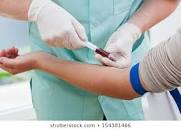
Diagnosed with Cancer? Your two greatest challenges are understanding cancer and understanding possible side effects from chemo and radiation. Knowledge is Power!
Learn about conventional, complementary, and integrative therapies.
Dealing with treatment side effects? Learn about evidence-based therapies to alleviate your symptoms.
Click the orange button to the right to learn more.
Multi-Cancer Early Detection Test

According to my friend and classmate, multi-cancer early detection tests were “going to change everything.” Bill had undergone the Gilleri test twice was not only a satisfied customer, he was a walking testimonial.
Second to a cure for cancer, a simple blood test that can identify an early cancer growing inside your body is a dream to a cancer survivor like me. My risk of both a relapse of my original cancer is real as is my risk of treatment-inducted secondary cancer.
Now that I think about it, I might not need a cure for cancer if I can take a simple blood test that can identify an early cancer growing in my body.
What are the Pros and Cons of a multi-cancer early detection test?
Pros:
- Early Detection: The primary benefit is the potential to detect various types of cancer at an early stage when treatment is more effective and outcomes are generally better.
- Comprehensive Screening: Multi-cancer tests can potentially detect a wide range of cancers, offering a more comprehensive screening approach compared to traditional single-cancer screening methods.
- Reduced Mortality: By detecting cancer earlier, there is the potential to reduce cancer-related mortality rates by initiating treatment promptly, which may improve survival rates.
- Convenience: Instead of undergoing separate tests for different types of cancer, individuals may undergo a single test for multiple cancers, offering convenience and potentially reducing healthcare costs.
- Improved Risk Assessment: Multi-cancer testing may provide valuable insights into an individual’s overall cancer risk profile, enabling personalized screening and preventive strategies.
Cons:
- False Positives: Multi-cancer tests may produce false-positive results, leading to unnecessary anxiety, additional testing, and potential harms from invasive follow-up procedures.
- Overdiagnosis: There’s a risk of overdiagnosis, where cancers that would not have caused harm if left untreated are detected, leading to unnecessary treatments and their associated risks.
- Cost: Multi-cancer testing may be expensive, potentially limiting access for individuals without adequate insurance coverage or financial resources.
- Limited Evidence: The evidence supporting the effectiveness of multi-cancer early detection tests is still evolving, and long-term data on their impact on mortality and morbidity are limited.
- Ethical Considerations: Issues such as privacy concerns, genetic discrimination, and the psychological impact of knowing one’s cancer risk need to be carefully considered and addressed.
- Sensitivity and Specificity: The sensitivity and specificity of multi-cancer tests vary depending on the technology and biomarkers used, leading to potential missed cancers or false reassurance.
- Variability in Cancer Types: Some multi-cancer tests may be better at detecting certain types of cancer than others, leading to variability in their effectiveness across different cancer types.
Unfortunately, it’s not that simple. There are already several tests that can identify early signs of a specific type of cancer. A good example is low-dose CT lung cancer screening. The bottom line is that yes, this type of screening saves lives but, like mammograms there are several serious drawbacks.
Like many aspects of oncology these days, multi-cancer early detection testing is in the early days. Yes, there is a great deal of potential. And yes, if you understand the pros and cons of this testing, you will spare yourself some real anxiety.
In the meantime, I will stick with evidence-based non-conventional therapies shown to reduce my risk of cancer such as exercise, fruits, veggies, nutritional supplementation, saunas, etc. etc.
Have you been diagnosed with cancer? What type? What stage? If you’d like to learn more about both conventional and non-conventional cancer therapies send me an email- David.PeopleBeatingCancer@gmail.com
Good luck,
David Emerson
- Cancer Survivor
- Cancer Coach
- Director PeopleBeatingCancer
Multi-Cancer Detection (MCD) Research
“NCI has been studying biomarkers of cancer and cancer risk for more than 20 years. One outgrowth of this research has been combining the measures into a way to test for multiple kinds of cancer at the same time. These types of tests, which use blood, urine, or other body fluids, are collectively known as either
- Multi-Cancer Detection assays (MCDs) or sometimes
- Multi-Cancer Early Detection assays (MCEDs). NCI uses the term
- Multi-Cancer Detection (MCD) assays or MCD tests.
MCD tests measure biological substances that cancer cells may shed in blood and other body fluids– such as circulating tumor cells, tumor DNA, and other materials – that may suggest the presence of cancer. Like all screening tests, the MCD assay itself does not diagnose cancer. Depending on which biological substances the MCD test measures, it may screen for several different types of cancer at once.
While many laboratory and small-scale human tests show the tests have promise, there are no large-scale clinical trials showing that the use of any MCD test for cancer screening reduces cancer deaths. Although no MCD tests have been authorized by the Food and Drug Administration, these tests may be offered by single laboratories under federal regulations known as Clinical Laboratory Improvement Amendments (CLIA). To date, no professional medical societies nor the U.S. Preventive Services Task Force have issued recommendations on the use of MCD tests for cancer screening…
Questions and Answers about MCD Tests
- About Cancer Screening
- About Multi-Cancer Detection Tests
- Risks, Benefits, and Needed Research
Who’s Afraid of Early Cancer Detection?
“A diagnosis of pancreatic cancer usually means a quick death—but not for Roger Royse, who was in Stage II of the disease when he got the bad news in July 2022. The five-year relative survival rate for late-stage metastatic pancreatic cancer is 3%—which means that patients are 3% as likely to live five years after their diagnosis as other cancer-free individuals. But if pancreatic cancer is caught before it has spread to other organs, the survival rate is 44%…
What is the Galleri test?
“The Galleri test does not detect a signal for all cancers and not all cancers can be detected in the blood. False positive and false negative results do occur.
Galleri redefines what’s possible. Only 5 cancers have recommended screening tests.2 Using Galleri in addition to these tests can increase the chance of finding cancer early, to allow for earlier treatment.1,3
With a single blood test, Galleri screens for a signal shared by multiple cancers that would otherwise go unnoticed.1,4 If a cancer signal is detected, Galleri predicts the tissue type or organ associated with the cancer signal with 88% accuracy* to help guide follow-up diagnostic testing which may include lab work or imaging to confirm cancer.4


